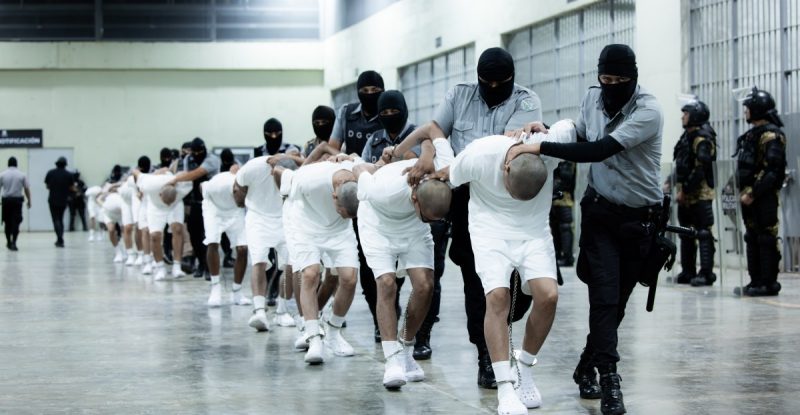
The Trump administration’s deportation of hundreds of suspected gang members to El Salvador’s notorious mega-prison has raised serious questions about due process and the accuracy of the accusations. In March 2025, over 250 individuals, including members of the Venezuelan Tren de Aragua and MS-13 gangs, were sent to El Salvador. This action, however, has been overshadowed by the administration’s admission of an “administrative error” in the case of Kilmar Armando Abrego Garcia, a migrant deported despite a 2019 judge’s ruling allowing him to remain in the US. Garcia’s case highlights the potential for injustice when due process is suspended.
The administration justified these deportations using an 18th-century wartime powers law, even defying a judge’s order to halt the deportations mid-flight. This blatant disregard for legal procedure raises concerns about the fairness of the process and the potential for wrongful deportations. Reports indicate that the administration relied on questionable criteria, such as tattoos and clothing, to identify gang members, leading to numerous cases where individuals may have been mistakenly deported.
While some deported individuals may indeed have gang affiliations, the lack of due process is alarming. A functioning justice system prioritizes determining guilt before imposing punishment. The Trump administration’s actions bypassed this crucial step, resulting in the deportation of individuals before their cases could be legally resolved. The administration’s inability to bring Garcia back, despite the error, further underscores the severity of this issue and the irreversible consequences of their actions.
The situation highlights a broader problem: the potential for mass deportations to become a tool for circumventing the legal system. The focus shifts from establishing guilt through due process to the swift removal of individuals based on potentially flawed assessments. This raises serious questions about the fairness and transparency of the immigration system and the potential for human rights abuses.
The case of Kilmar Armando Abrego Garcia serves as a stark reminder of the importance of due process in any justice system, regardless of the perceived threat. The Trump administration’s actions, while potentially aiming to address gang-related crime, have inadvertently exposed the dangers of bypassing established legal procedures. The long-term consequences of these actions, both for the individuals deported and the integrity of the legal system, remain to be seen.










